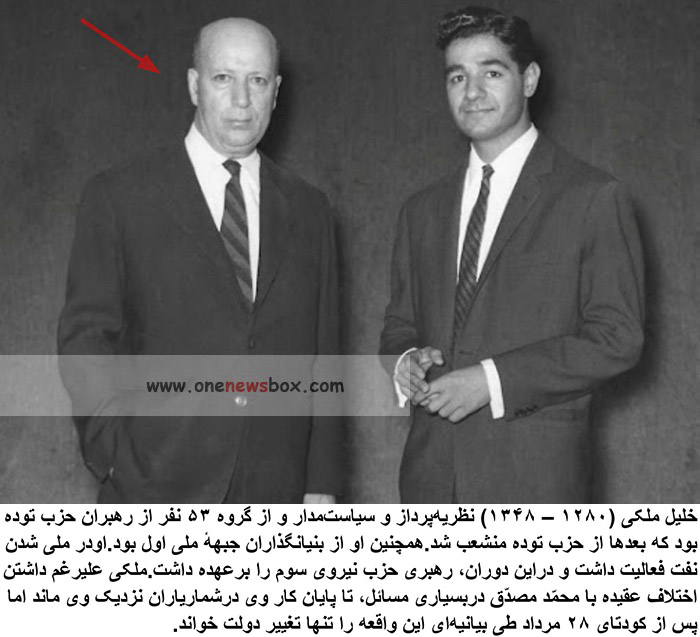Khalil Maleki: A Life of Democratic Socialism, Intellectual Integrity, and Political Marginalization
Despite his differences of opinion with Mohammad Mosaddeq on many issues, Khalil Maleki remained one of his close associates until the end of his political career. However, following the coup of 18 Mordad (August 19, 1953), which overthrew the Mossadegh government, Maleki issued a statement referring to the event as merely a “change of government,” a position that disappointed many of his allies and followers. This moment marked a controversial turning point, not only in Iranian politics but also in Maleki’s relationship with the broader Iranian left.
Early Life and Education
Khalil Maleki was born in Tabriz in the year 1280 in the Iranian calendar (1901 AD). His father was a merchant in the bazaar and a supporter of the Constitutional Revolution—a movement that advocated for the rule of law and parliamentary governance. As a child, Maleki witnessed the violence and fervor of this revolution that unfolded in the streets of Tabriz, a city known for its resistance and progressive thought. These early memories planted the seeds of political engagement in young Maleki’s mind.
Tragedy struck early when he lost his father while still a student in primary school. His mother later remarried, and the family moved to Arak, where Maleki continued his early education. Eventually, he moved to Tehran to attend high school, enrolling in the prestigious German Technical School (Madreseh-ye San’ati-ye Almani).

